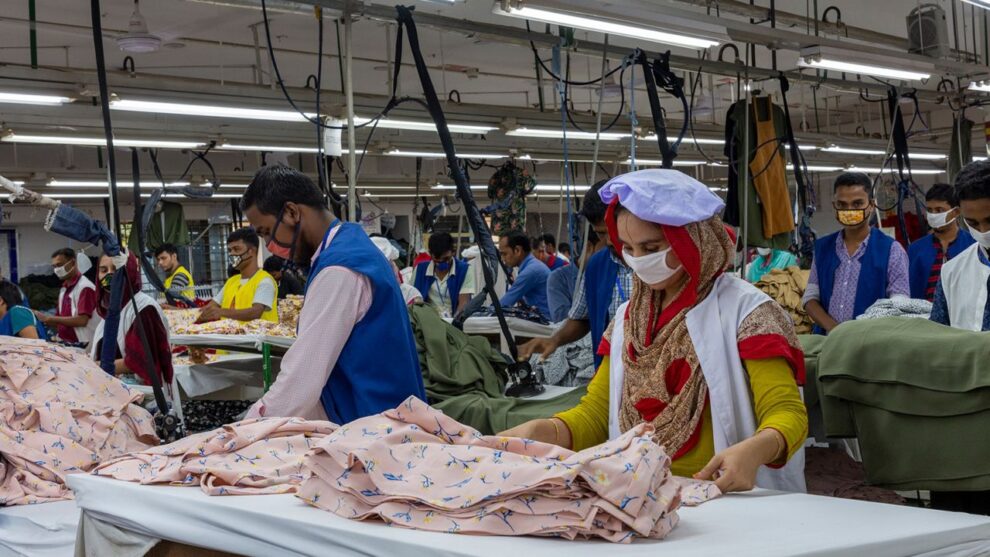A new report from Fashion Revolution, a non-profit “fashion activism movement,” claims that an overwhelming majority of major fashion brands are refusing to publicly disclose key information about their supply chains.
The Fashion Transparency Index — an annual review established by the group in 2017 — ranks major labels on their level of openness around company practices pertaining to human rights and environmental policies. “Transparency is only the starting point, and it seems many brands have failed to even show up to the race,” reads the introduction of the report released today. Instead, it asserts, “There are vested interests in showcasing empty promises and unambitious targets which are ill-equipped to save us from the climate crisis, while continuing absurd excess, wage theft and the draining of our shared planet.”
The study collates publicly available data on brands with an annual turnover of more than USD $400 million — including fashion companies across fast fashion, luxury, sportswear, denim and accessories. None of the information released today by Fashion Revolution is verified or audited by an independent party, but rather the report exists as a dossier of claims the group hopes stakeholders can use to “hold brands to account.”
This year, addressing living wages and worker inequality became a new area of focus for Fashion Revolution, which since July 2022 has been campaigning for an increase in salaries across global supply chains. For the 2023 Index, the group asked 250 major brands for information on the weekly take-home pay for entry-level workers, the number of workers paid “by piece” in their supply chains (meaning payments are directly correlated to how much they can produce, rather than time worked) and the proportion of workers paid at least minimum wage.
According to the report, 99% of those asked did not disclose the number of workers in their supply chains being paid a living wage. The remaining 1% said they had provided wages higher than required by local law — Fashion Revolution points out this is, in many cases, not the same as a livable wage.
Other findings in the report addressed industry shortcomings in the face of the ongoing climate crisis. According to the Index, 94% of the industry’s top brands do not publicly disclose what fuels are used to manufacture their clothes. Just 6% admitted to relying on coal to power at least some of their supply chains, and only 9% revealed steps taken to decarbonize their production lines.

The report also examined brand transparency in relation to climate initiatives.Antonio Cossio/picture alliance/Getty Images
However, the report also claims more brands are communicating their approach to due diligence (identifying human rights, environmental risks and stakeholder impact across supply chains). Today, 68% of the brands publish their processes for identifying human rights issues in their supply chains; 49% share their approach for environmental issues. The Index posits this uptick is likely spurred by incoming legislation such as the Corporate Sustainability Due Diligence Directive proposed by the European Commission in February 2022 — rules that will ensure businesses properly address the adverse effect of their actions on the environment and humans.
The report scores the 250 brands by their transparency and converts those scores into percentages. This year, 18 brands scored just 0-5%, meaning they disclosed nothing at all or very little in relation to human rights and climate issues. 210 of the 250 brands received less than 50%, and just two companies were deemed 80% transparent.
“The issues in the fashion industry never fall on any single person, brand, or company,” reads the Index. “That’s why we focus on using our voices to transform the entire system.”
Source : CNN Style






















